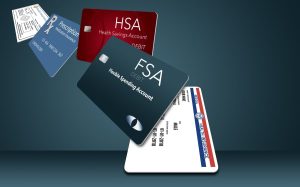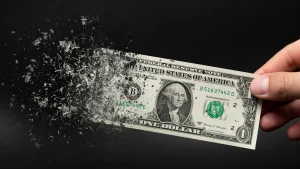Managing credit card debt can be a daunting task, especially when it starts to accumulate and becomes overwhelming. However, paying off your credit card debt quickly is possible with the right strategies and mindset.
In this article, we will explore practical steps you can take to reduce and eliminate your debt, helping you regain financial freedom.
Prioritize your debts: The power of the avalanche and snowball methods

When it comes to paying off credit card debt, one of the first steps is to prioritize which debts to tackle first. Two popular strategies are the Avalanche and Snowball methods, each offering a different approach to debt repayment. The Avalanche method involves paying off the debt with the highest interest rate first while making minimum payments on the others.
This strategy minimizes the amount of interest you’ll pay over time, allowing you to save money in the long run. Once the highest interest debt is paid off, you move on to the next highest, and so on. This method is particularly effective for those who want to reduce the total amount paid in interest.
On the other hand, the Snowball method focuses on paying off the smallest debts first, regardless of interest rates. This approach is designed to build momentum, as clearing smaller debts quickly can provide a psychological boost, encouraging you to continue with your repayment plan. As each small debt is paid off, you redirect those payments to the next smallest debt, creating a “snowball” effect that gains momentum over time.
Cut back on unnecessary expenses: budgeting for debt repayment
One of the most effective ways to pay off your credit card debt quickly is to free up as much money as possible by cutting back on unnecessary expenses. This involves taking a close look at your budget and identifying areas where you can reduce spending.
Start by categorizing your expenses into essentials (like rent, utilities, and groceries) and non-essentials (like dining out, subscriptions, and entertainment). While it’s important to maintain a balanced lifestyle, reducing non-essential spending can significantly impact your ability to pay down debt faster. For example, consider cutting back on eating out or canceling subscriptions you don’t use regularly.
Additionally, consider finding ways to increase your income. Whether it’s taking on a part-time job, freelancing, or selling unused items, the extra income can accelerate your debt repayment. Even small increases in income, when combined with reduced spending, can have a substantial impact on your debt payoff timeline.
Consolidate your debt: simplifying payments and lowering interest rates
Debt consolidation is another strategy that can help you pay off your credit card debt more quickly. This involves combining multiple debts into a single loan with a lower interest rate, making it easier to manage and potentially reducing the total amount of interest you pay.
One option for debt consolidation is a balance transfer credit card, which allows you to transfer the balances of your high-interest credit cards to a new card with a lower interest rate, often with an introductory period of 0% APR. This can give you some breathing room to pay off the balance without accruing additional interest.
However, it’s important to be aware of balance transfer fees and ensure you can pay off the balance before the introductory period ends, as the interest rate may increase afterward. Another option is to take out a personal loan to pay off your credit card debt.
Personal loans typically have lower interest rates than credit cards, and since they come with fixed payments, they can help you create a clear repayment plan. By consolidating your debt with a personal loan, you can simplify your finances by having just one monthly payment instead of multiple credit card payments.
Negotiate with creditors: seeking lower interest rates and better terms
If you’re struggling to pay off your credit card debt, negotiating with your creditors can be an effective way to reduce your debt and make repayment more manageable. Credit card companies are often willing to work with you, especially if they believe you might default on your debt.
Start by contacting your credit card issuer and explaining your situation. Be honest about your financial difficulties and ask if they can offer any relief, such as a lower interest rate, a temporary reduction in your minimum payment, or a waiver of late fees. Many credit card companies have hardship programs designed to help customers in financial distress, and you might be surprised at how willing they are to help.
Another option is to negotiate a debt settlement, where you offer to pay a lump sum that is less than the full amount you owe. Creditors might accept this offer if they believe it’s their best chance of getting some of their money back. However, debt settlement can negatively impact your credit score, so it’s important to weigh the pros and cons before pursuing this option.
Increase your payments: accelerating debt reduction
One of the most straightforward ways to pay off your credit card debt quickly is to increase your monthly payments. By paying more than the minimum amount due each month, you can significantly reduce the time it takes to pay off your debt and decrease the total interest paid.
To increase your payments, consider any extra income you receive, such as tax refunds, bonuses, or gifts. Instead of using this money for discretionary spending, put it toward your credit card debt. Additionally, if you’ve cut back on expenses as discussed earlier, the money saved can be used to increase your payments.
Another strategy is to make bi-weekly payments instead of monthly payments. By doing this, you end up making an extra payment each year, which can accelerate your debt repayment. This approach also reduces the amount of interest you accrue, as your balance decreases more frequently.
Conclusion: achieving financial freedom
Paying off credit card debt quickly requires dedication, strategy, and sometimes a bit of sacrifice. By prioritizing your debts, cutting unnecessary expenses, consolidating your debt, negotiating with creditors, and increasing your payments, you can take control of your financial situation and work toward becoming debt-free. While the journey may not be easy, the sense of financial freedom and the ability to start saving for your future make it well worth the effort.





